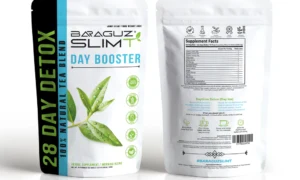Intro:
Choosing the perfect hitch for your vehicle may seem like a daunting task, but fear not! In this guide, we’ll break down the key factors to consider when selecting a hitch that suits your needs. Whether you’re a seasoned traveler or just starting your towing journey, understanding vehicle limits, towing requirements, hitch classes, weight ratings, proper fitment, material considerations, versatility, and assessing longevity will empower you to make an informed decision. So, let’s dive into the world of hitches and discover how to pick the perfect one for your adventures!
Vehicle Limits:
First and foremost, know your vehicle’s towing capacity. Check the owner’s manual or consult the manufacturer to understand the limits. Overloading can strain your vehicle and compromise safety. By staying within the recommended limits, you ensure a smoother and safer towing experience for your journeys.
Towing Requirements:
Consider what you’ll be towing. Towbars is the most important tool in towing any vehicle. Different trailers have varying requirements, and your hitch choice should align with these needs. Whether it’s a camper, boat, or utility trailer, understanding the specific towing requirements ensures compatibility and optimal performance.
Hitch Class:
Hitches come in different classes, each designed for specific towing capacities. Class I hitches for lighter loads, while Class V hitches are heavy-duty for substantial towing. Match your hitch class to your towing needs for a reliable and secure connection between your vehicle and the trailer.
Weight Ratings:
Pay attention to weight ratings – both for the hitch and the trailer. The Gross Trailer Weight (GTW) and Tongue Weight (TW) should be well within the limits of your chosen hitch. Proper weight distribution ensures stability on the road and prevents unnecessary strain on your vehicle.
Proper Fitment:
Ensure the hitch fits your vehicle. Compatibility is crucial for safety and functionality. Measure your vehicle’s frame and select a hitch that matches those dimensions. A proper fitment guarantees a secure attachment and minimizes the risk of accidents or damage during towing.
Material Matters:
Consider the material of the hitch. Opt for sturdy materials like steel, which offers durability and strength. A robust hitch can withstand the rigors of towing, ensuring longevity and reliability. Stainless steel is resistant to corrosion, extending the life of your hitch in various weather conditions.
Versatility:
Look for a versatile hitch that accommodates different towing scenarios. Some hitches come with adjustable features, allowing you to adapt to various trailer heights and towing angles. Versatility adds convenience and flexibility to your towing experiences.
Assess Longevity:
Assess the longevity of the hitch by considering factors like weather resistance, corrosion protection, and overall build quality. Investing in a durable hitch may cost a bit more initially but pays off in the long run with fewer replacements and enhanced safety for your towing adventures.
In conclusion, choosing the right hitch involves a thoughtful consideration of your vehicle’s limits, towing requirements, hitch class, weight ratings, proper fitment, material matters, versatility, and assessing longevity. By understanding these key aspects, you’ll be well-equipped to embark on your journeys with confidence, ensuring a safe and enjoyable towing experience. Happy towing!






























